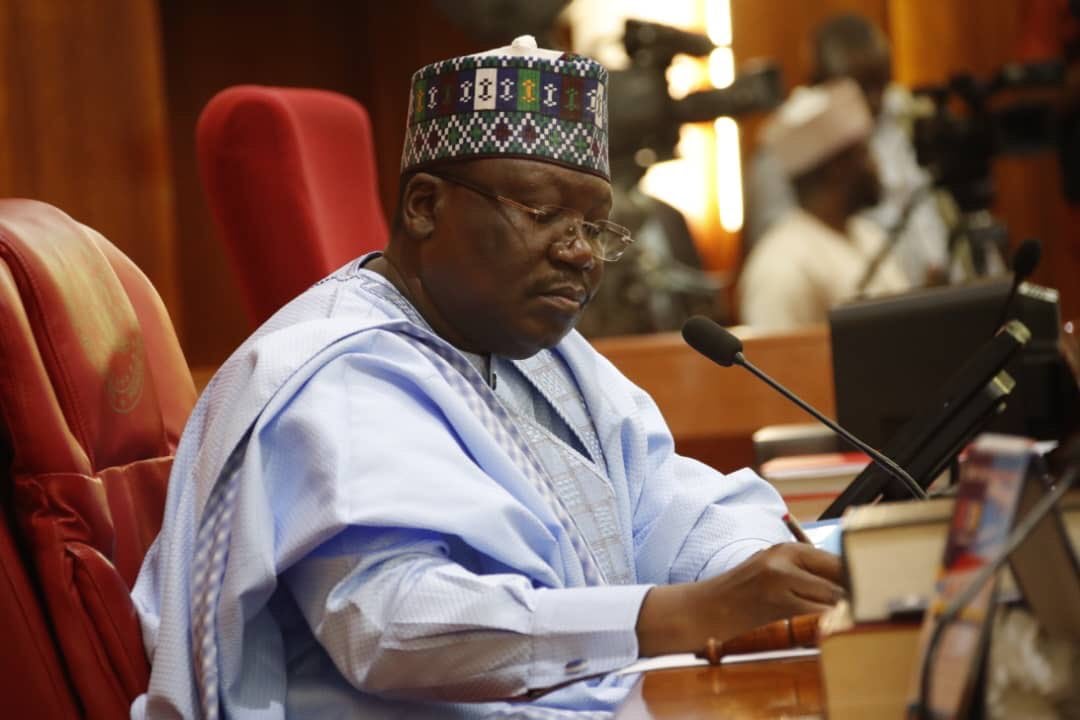Godwin Emefiele, governor of the Central Bank of Nigeria (CBN), says the nation’s land borders will remain closed until neighbouring countries meet the requirements for it to be reopened.
Emefiele said this on Monday while speaking to journalists after a meeting with President Muhammadu Buhari in Abuja.
The federal government had closed the country’s land borders to importing and exporting of all items in a bid to curb illegal trading activities by Nigeria’s neighbours.
Hameed Ali, comptroller-general of the Nigeria Customs Service (NCS), had said that Nigeria’s borders will remain closed until the country and its neighbours agree on existing ECOWAS protocol on movement.
Advertisement
Despite several calls by stakeholders for the re-opening of the borders, Emefiele said the affected countries must first have “concrete engagements” on mutual anti-smuggling policies.
He explained that the smuggling of goods through these countries undermines Nigeria’s economic policy.
“We are not saying that the borders should be closed in perpetuity, but that before the borders are reopened, there must be concrete engagements with countries that are involved in using their ports and countries as landing ports for bringing in goods meant for local consumption, it is understandable,” Emefiele said.
Advertisement
“But the fact that those products are landed in their countries and then transshipped or smuggled into Nigeria is something that I am sure you all agree as Nigerians we should not allow happening because it undermines our economic policy, it undermines our own desire to make sure that industries are alive and jobs are created in Nigeria.”
Emefiele further said that the country’s rice and poultry farmers have, since the closure, recorded improved sales.
“Recently, and this is the absolute truth, about two weeks before the border closure, the chairman of the Rice Processors Association, incidentally, he owns Umza Rice in Kano, called me and said that all the rice millers and processors are having in their warehouses nothing less than 25,000 metric tons of milled rice. That this rice has been unsold because of the smuggling and dumping through Republic of Benin and other border posts that we have in the country and that he would want us to do something about it,” he said.
“Secondly, we also have members of the Poultry Association of Nigeria who also complained that they have thousands of crates of eggs that they could not sell together with even some of the processed chickens also arising from the problem of smuggling and dumping of poultry products into Nigeria.
Advertisement
“A week after the borders were closed, the same rice millers association called to tell us that all the rice that they had in their warehouses have all been sold. Indeed, a lot of people have been depositing money in their accounts and they have even been telling them ‘please hold on don’t even pay money yet until we finished processing your rice’.
“The Poultry Associations have also come to say that they have sold all their eggs, they have sold all their processed chickens and that demand is rising.”
According to him, the improved sale of rice and poultry products is the benefit of closing the borders.
“So when you asked, what is the benefit of the border closure on the economy of Nigeria, I just used two products – poultry and rice. The benefit is that it has helped to create jobs for our people, it has helped to bring the integrated rice milling that we have in the country back into business again and they are making money. Our rural communities are bubbling because there are activities because rice farmers are able to sell their paddy. The poultry business is also doing well, and also maize farmers who produce maize from which feeds are produced are also doing business. These are the benefits,” he said.
Advertisement
The International Monetary Fund (IMF) had backed Nigeria’s closure of its borders.
Advertisement
Add a comment







